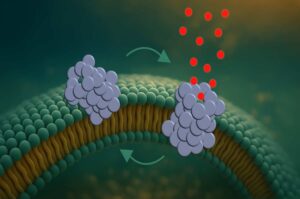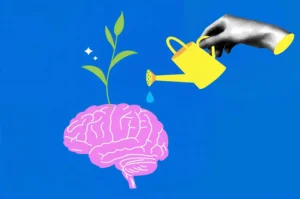“Is drinking alcohol just a habit, or could it be an addiction? Millions struggle daily with alcohol dependence, but recovery is possible.”
Table of Contents
ToggleWhat is Alcohol Addiction?
Definition and Overview
Alcohol addiction, also known as alcohol use disorder (AUD), is a chronic condition where an individual becomes physically and psychologically dependent on alcohol. It goes beyond casual or social drinking, leading to an uncontrollable urge to consume alcohol despite its harmful effects on health, relationships, and daily life. Over time, tolerance builds up, meaning a person needs more alcohol to feel the same effects, which can result in dangerous drinking patterns and long-term complications such as liver damage, mental health issues, and social isolation.
Alcohol Abuse vs. Alcohol Dependence
While the terms are often used interchangeably, alcohol abuse and alcohol dependence describe different stages of problem drinking:
- Alcohol Abuse: This refers to drinking in a harmful or risky way, such as binge drinking, drinking and driving, or using alcohol to cope with stress. At this stage, a person may not be physically dependent but continues to drink despite knowing the risks.
- Alcohol Dependence: This is a more advanced stage where the body and brain adapt to regular alcohol use. The person experiences strong cravings, tolerance, and withdrawal symptoms (such as anxiety, sweating, and tremors) when not drinking. Dependence often requires medical and psychological support to overcome.
Understanding the difference between abuse and dependence is crucial because early recognition and intervention can prevent addiction from worsening and help individuals take meaningful steps toward recovery.
Causes of Alcohol Addiction
Understanding the root causes of alcohol addiction is essential to addressing it effectively. While no single factor is solely responsible, a mix of biological, environmental, and psychological influences often plays a role in shaping addictive behavior.
Biological Factors (Genetics, Brain Chemistry)
Research shows that genetics can significantly influence the risk of alcohol addiction. If someone has a family history of alcoholism, their chances of developing the condition are higher. Additionally, alcohol directly affects the brain’s reward system, releasing dopamine and creating feelings of pleasure. Over time, the brain begins to crave this artificial stimulation, making it difficult to resist alcohol. Some individuals may also have chemical imbalances that make them more vulnerable to dependence.
Environmental Influences (Peer Pressure, Culture, Family)
The environment a person grows up in or is exposed to plays a powerful role in shaping drinking habits. Peer pressure, especially during teenage or young adult years, often encourages experimentation with alcohol. In cultures where heavy drinking is normalized, individuals may not see it as harmful. Family dynamics also matter—children raised in households where alcohol abuse is common are more likely to develop similar habits.
Psychological Triggers (Stress, Trauma, Mental Health Disorders)
Emotional and psychological struggles are strong driving forces behind alcohol addiction. Many people turn to alcohol as a coping mechanism for stress, unresolved trauma, or difficult life experiences. Mental health conditions such as anxiety, depression, or bipolar disorder can also increase vulnerability. Alcohol temporarily numbs emotional pain, but over time, it worsens mental health, creating a cycle of dependency.
Signs and Symptoms of Alcohol Addiction
Alcohol addiction often develops gradually, making it difficult to notice in the early stages. However, recognizing the signs and symptoms is crucial for timely help and recovery. These symptoms can manifest physically, behaviorally, and emotionally, affecting nearly every aspect of life.
Physical Symptoms (Tolerance, Withdrawal, Blackouts)
One of the clearest indicators of alcohol addiction is the body’s physical response. Over time, a person may develop tolerance, meaning they need larger amounts of alcohol to feel the same effect. When alcohol use is reduced or stopped, withdrawal symptoms such as shaking hands, sweating, nausea, or insomnia often appear. Frequent blackouts or memory gaps after drinking are also warning signs that alcohol is disrupting brain function and overall health.
Behavioral Symptoms (Loss of Control, Neglecting Responsibilities)
Addiction often changes the way a person acts in daily life. A common symptom is loss of control, where the individual finds it difficult to limit or stop drinking, even when they intend to. They may neglect responsibilities at work, school, or home, prioritizing drinking over commitments. Risky behaviors—such as driving under the influence or engaging in unsafe activities—also signal a deeper problem with alcohol use.
Emotional & Mental Health Symptoms (Anxiety, Depression, Mood Swings)
Alcohol addiction doesn’t only harm the body—it heavily impacts mental and emotional well-being. Many people experience anxiety, depression, or irritability, especially when not drinking. Mood swings are common, with emotions shifting quickly from calm to aggressive or withdrawn. Over time, alcohol can worsen pre-existing mental health conditions, creating a cycle where drinking is used as a coping mechanism, further fueling dependency.
Effects of Alcohol Addiction
Short-Term Effects (hangovers, risky behavior)
Alcohol addiction often leads to immediate consequences that can disrupt daily life. People may experience frequent hangovers, nausea, dehydration, and fatigue, which lower productivity and affect concentration. Alcohol lowers inhibitions, causing risky behaviors such as reckless driving, unprotected sex, or aggression. These short-term effects not only harm the body but also increase the chances of accidents and regretful decisions.
Long-Term Effects (liver damage, heart disease, mental health impact)
Over time, alcohol addiction takes a serious toll on the body and mind. Prolonged drinking damages the liver, increasing the risk of cirrhosis, fatty liver, and liver cancer. It also weakens the heart, leading to high blood pressure, irregular heartbeat, and even heart disease. Beyond physical health, alcohol dependency deeply affects mental well-being, contributing to anxiety, depression, memory problems, and a heightened risk of developing other psychiatric disorders.
Social and Relationship Impacts
The impact of alcohol addiction is not limited to health—it spreads into personal and social life. Relationships with family, friends, and colleagues often suffer due to mood swings, broken trust, and financial strain. Many people struggling with addiction face social isolation, job loss, or conflicts at home, which further intensify feelings of guilt and loneliness. Over time, alcohol dependency can create a cycle where both personal and professional life become increasingly difficult to manage.
Diagnosis and Treatment Options
Medical Diagnosis (Screening Tests, Doctor Consultation)
The first step in addressing alcohol addiction is a proper medical diagnosis. Doctors may begin with detailed questionnaires, lifestyle assessments, and blood tests to identify liver damage or other health complications. A consultation with a healthcare professional helps determine the severity of alcohol use disorder (AUD) and the best treatment plan tailored to individual needs.
Treatment Approaches
Detoxification & Medication
Detox is often the initial stage, aimed at safely managing withdrawal symptoms. Under medical supervision, medications such as naltrexone, acamprosate, or disulfiram may be prescribed to reduce cravings and prevent relapse. Detoxification creates a stable foundation for long-term recovery.
Counseling & Therapy (CBT, Group Therapy)
Psychological support plays a vital role in breaking addictive patterns. Cognitive Behavioral Therapy (CBT) helps individuals recognize triggers and change harmful thought patterns. Group therapy provides shared experiences, emotional support, and accountability—reducing the feeling of isolation.
Rehabilitation Programs
Structured inpatient or outpatient rehab programs offer a holistic approach, combining medical care, therapy, and skill-building activities. These programs are especially helpful for individuals with severe addiction, providing a safe environment for recovery and relapse prevention.
Support Groups (AA, Online Communities)
Peer support is a cornerstone of lasting recovery. Alcoholics Anonymous (AA) and similar programs create a supportive community where individuals share struggles and progress. Online communities and forums also offer accessible 24/7 support, ensuring no one feels alone in their journey.
Recovery and Self-Help Strategies
Building a Support System
Recovery is not a journey meant to be walked alone. Surrounding yourself with supportive family, friends, or peer groups creates a safety net during difficult times. Joining community groups, therapy sessions, or 12-step programs can provide encouragement, accountability, and shared experiences that reduce feelings of isolation. A strong support system is often the backbone of long-term sobriety.
Lifestyle Changes for Sobriety
Sustaining sobriety requires meaningful lifestyle adjustments. Prioritizing a balanced diet, regular exercise, and adequate sleep strengthens both body and mind. Engaging in hobbies, mindfulness practices, or volunteering helps replace old habits with healthier routines. Consistency in these positive behaviors gradually rewires the brain, making sobriety not just a choice but a fulfilling way of life.
Coping with Relapse
Relapse does not mean failure—it signals the need to reassess and reinforce recovery strategies. Instead of self-blame, view it as a learning opportunity to identify triggers and develop stronger coping mechanisms. Seeking immediate support, revisiting therapy, or adjusting treatment plans can help you regain momentum. Remember, recovery is a process, and resilience is built by standing up each time you fall.
Prevention of Alcohol Addiction
Healthy Drinking Habits
Building healthy drinking habits is one of the most effective ways to prevent alcohol addiction. This doesn’t necessarily mean complete avoidance, but rather practicing moderation and setting clear boundaries. For instance, limiting alcohol to social occasions, knowing your limits, and avoiding binge drinking can significantly reduce risks. Replacing alcohol with healthier alternatives like mocktails, herbal teas, or fresh juices during gatherings also helps in breaking the cycle of dependency. Moreover, maintaining a balanced lifestyle—regular exercise, stress management techniques such as meditation, and prioritizing sleep—supports mental and physical health, making it easier to stay in control of alcohol consumption.
Raising Awareness & Education
Awareness and education are powerful tools in preventing alcohol addiction at both personal and community levels. Educating young people about the long-term effects of excessive drinking helps them make informed decisions early in life. Workplaces, schools, and communities can play a vital role by hosting workshops, campaigns, and awareness drives to highlight the dangers of alcohol misuse. Families, too, can foster open conversations about the risks and create a supportive environment where individuals feel safe to discuss challenges. The more people understand the impact of alcohol on health, relationships, and productivity, the stronger the collective resistance against addiction becomes.
Read Also:
Bipolar Disorder: Symptoms, Causes & How to Manage It Effectively
Ganesh Chaturthi Decoration Ideas at Home: Creative & Budget-Friendly Tips for Beginners
FAQs:
Q1: What are the main causes of alcohol addiction?
Genetics, mental health issues, stress, peer pressure, and frequent heavy drinking are primary contributing factors.
Q2: Can alcohol addiction be cured permanently?
Alcohol addiction cannot be permanently cured but can be effectively managed with treatment and lifelong commitment.
Q3: How can I identify early signs of alcohol dependence?
Increased tolerance, frequent cravings, neglecting responsibilities, secrecy, and withdrawal symptoms indicate early alcohol dependence.
Q4: What is the best treatment for alcohol addiction?
Combination of therapy, medication, support groups, counseling, and lifestyle changes offers effective alcohol addiction treatment.
Q5: How do I help a loved one struggling with alcoholism?
Offer emotional support, encourage treatment, avoid judgment, set boundaries, and connect them with professional help.









